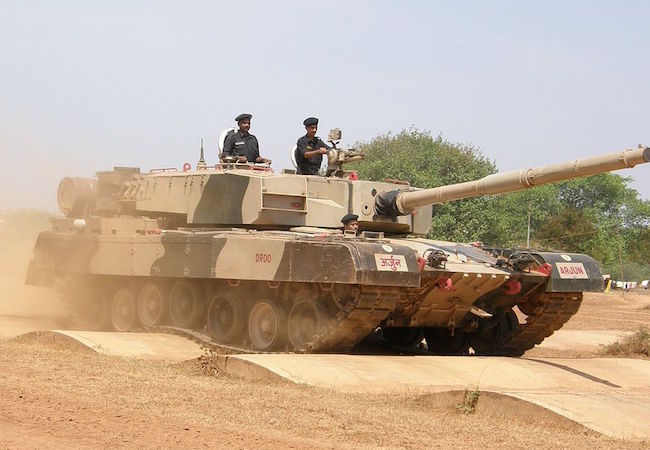
By Syeda Saiqa Bukhari
On 10thof January, Indian Army Chief General Bipin Rawat gave the statement that the military is launching war games next month to test ‘structures geared towards sudden and swift offensives into enemy territory by Integrated Battle Groups (IBGs)’. These new structures will be “validated” in military exercises on the ground in May, 2019’. He further highlighted the three key objectives of these exercises: to be prepared for future warfare by strengthening Indian military capabilities, become more efficient and better manage its defence budget which shows that India is trying to prepare itself for military conflict against Pakistan.
Integrated Battle Groups (IBGs) are self-contained fighting units, comprising of major elements of military with close support of the air force and if need arises expanded to include naval forces. He further said that ‘after military exercises they will go to the government and take their sanction to restructure traditional divisions into permanent IBGs’.
South Asian region witnesses complex and hostile relations between India and Pakistan due to a number of historical and political events. Indeed, both hostile states have over 100 nuclear warheads; have gone to war four times since independence, in addition to several other standoffs, skirmishes and crises that nearly escalated into conflict. This new statement from Indian side provides the latest reminder of hostility between two India and Pakistan.
General Rawat’s statement somehow raises concerns in Pakistan because the proposed Integrated Battle Groups are the foundation of Indian offensive military doctrine, which involves initiating rapid military offence from multiple fronts by exploiting the element of surprise and leaving Pakistan with neither the time to respond nor the defensive resources to stop those multiple attacks. Indian intention to operationalize IBG is a way of parlaying Pakistan’s nuclear gamesmanship through proactive war.
The timing of General Bipin statement is very noteworthy as in January 2017; General Rawat appeared to acknowledge the existence of Cold Start. Before that, the Indian political and military establishments have not officially sanctioned the doctrine. General Bipin said that CSD exists for conventional military operations. His more recent statement about IBGs exercises seem to solidify further that Indian is in its path towards implementation of its offensive military strategy.
Indian military doctrine Cold Start is to fight short duration of conventional war with Pakistan under the nuclear shadow. Cold Start Doctrine involves restructuring of its defensive formations of army stationed near to the international borders, expansion of its offensive capability with higher mobility, make preliminary gains by exploiting the element of surprise and more focus on combined operations of air-land forces. Military offensive power of India is consisted of three strike corps, an armored division each with mechanized infantry and extensive artillery support. Holding corps operate as defensive corps stationed closed to the international border and primarily meant for enemy penetrations. Indian Cold Start Doctrine would require reorganization of the Indian military offensive power into eight small sized battle groups called IBGs that combine mechanized infantry, artillery, and armor.
Indian Army Chief General Bipin Rawat official conformation about the existence and validity of offensive military doctrine Cold Start a year before, justified Pakistan’s development of Short Range Ballistic Missiles “Nasr”. Pakistan tactical nuclear weapons have a definite capability to deter India’s aggressive military action.
As seen that after Modi Government, India is more assertive towards Pakistan. They have claimed to conduct surgical strikes inside Pakistan which is yet doubtful. If India continues its assertive behavior towards Pakistan, Islamabad can expect any kind of Indian conventional military attack. Again the Indian general election is going to happen in April/May this year, Pakistan is undoubtedly a subject of relevance in the India’s 2019 general elections.
During the BJP government, anti-Pakistan sentiments have flared in New Delhi on multiple occasions, prompting many of the members from the BJP to perpetuate such sentiments overtly. Pakistan’s Prime Minister Imran Khan has made several offers for talks but India repeatedly rebuffed such attempts. Because a step towards normalizing the relationship with Islamabad could be used against the government by the opposition parties, and deteriorating the vote bank of BJP government. General Bipin statement in this scenario is very significant because this is the one way to do stirring up nationalistic sentiments among the people.
Hence, India has made noticeable strides towards operationalising the Cold Start Doctrine which includes weapon and equipment procurements, forward leaning posture by constructing cantonment near the international border and shifting of logistical units, depots to forward locations and recent announcement to restructuring of traditional armed forces to IBGs. This implies that India is fast moving towards fully operationalizing the Cold Start Doctrine by meeting all the requirements to successfully implement such a strategy. However, to what extent it can dent the Pakistani defenses or to what extend it can achieve its stated objectives remains a different proposition which remains a subject of debate and is difficult to predict with certainty.
So far India is not ready for any limited, quick and swift warfare operations. India lack adequate offensive elements in their overall military. Most of the Indian offensive military capabilities are under process. It could be assumed that by 2025, New Delhi would be able to fulfill its deficiencies in its army and air force capabilities and would be able to launch joint military and air force operation with the support of political leadership capabilities. Presently, India need more time to fill the operational gaps to bring into practice its CSD. It can be said that India changed its military doctrine only to threaten Pakistan not for initiation of limited conflict against Pakistan.
Lastly, Nasr (TNW) holds peculiar position as far as Indian military’s Cold start doctrine is concerned. The induction and deployment of Tactical nuclear weapons would checkmate CSD and prevent India from any misadventure.
Syeda Saiqa Bukhari is Research Associate at Strategic Vision Institute Islamabad.




